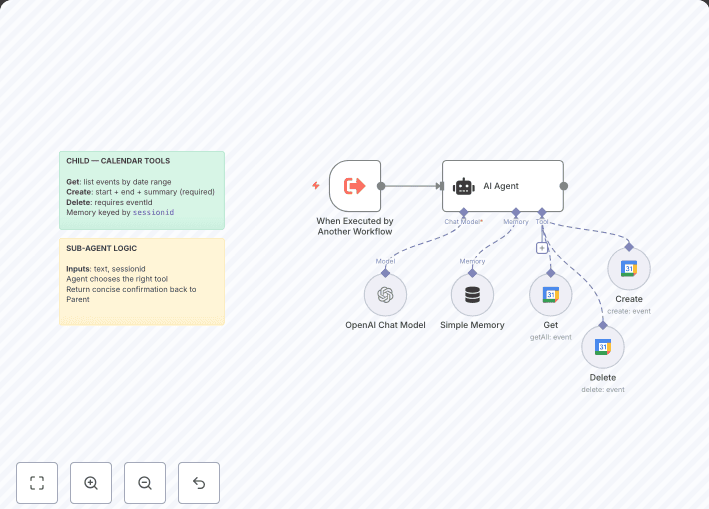Marker.io to ServiceNow Integration
Automatically create ServiceNow incidents with full technical context when bugs are reported throughMarker.io
🎯 What this template does
This workflow creates a seamless bridge between Marker.io and ServiceNow, your IT service management platform. Every issue submitted through Marker.io's widget automatically becomes a trackable incident in ServiceNow, complete with technical details and visual context. This ensures your IT team can track, prioritize, and resolve bugs efficiently within their existing ITSM workflow.
When a bug is reported, the workflow:
- Captures the complete Marker.io webhook payload
- Formats all technical details and metadata
- Creates a new incident in ServiceNow with the reporter information
- Includes comprehensive technical context and Marker.io links
- Preserves screenshots, browser info, and custom data
✨ Benefits
- Automated ticket creation - No manual data entry required
- Complete context - All bug details transfer automatically
- Faster triage - IT teams see issues immediately in ServiceNow
- Better tracking - Leverage ServiceNow's incident management capabilities
- Rich debugging info - Browser, OS, and screenshot details preserved
💡 Use Cases
- IT Service Desks : Streamline bug reporting from end users
- Development Teams : Track production issues with full technical context
- QA Teams : Convert test findings directly into trackable incidents
- Support Teams : Escalate customer-reported bugs to IT with complete details
🔧 How it works
- N8N Webhook receives Marker.io bug report data
- JavaScript node formats and extracts relevant information
- ServiceNow node creates incident with formatted details
- Incident includes title, description, reporter info, and technical metadata
- Links preserved to both public and private Marker.io views
The result is a fully documented ServiceNow incident that your IT team can immediately action, with all the context needed to reproduce and resolve the issue.
📋 Prerequisites
- Marker.io account with webhook capabilities
- ServiceNow instance with API access enabled
- ServiceNow credentials (username/password or OAuth)
- Appropriate ServiceNow permissions to create incidents
🚀 Setup Instructions
- Import this workflow into your n8n instance
- Configure the Webhook :
- Copy the production webhook URL after saving
- Add to Marker.io: Workspace Settings → Webhooks → Create webhook
- Select "Issue Created" as the trigger event
- Set up ServiceNow credentials :
- In n8n, create new ServiceNow credentials
- Enter your ServiceNow instance URL
- Add username and password for a service account
- Test the connection
- Customize field mappings (optional):
- Modify the JavaScript code to map additional fields
- Adjust priority mappings to match your ServiceNow setup
- Add custom field mappings as needed
- Test the integration :
- Create a test issue in Marker.io
- Verify the incident appears in ServiceNow
- Check that all data transfers correctly
📊 Data Captured
ServiceNow Incident includes:
- Short Description : Issue title from Marker.io
- Description containing:
- 🐛 Issue title and ID
- 📊 Priority level and issue type
- 📅 Due date (if set)
- 📝 Full issue description
- 🖥️ Browser version and details
- 💻 Operating system information
- 🌐 Website URL where issue occurred
- 🔗 Direct links to Marker.io issue (public and private)
- 📦 Any custom data fields
- 📷 Screenshot URL with proper formatting
🔄 Workflow Components
- Webhook Node : Receives Marker.io POST requests
- Code Node : Processes and formats the data using JavaScript
- ServiceNow Node : Creates the incident using ServiceNow API
→ Read more about Marker.io webhook events
🚨 Troubleshooting
Webhook not triggering:
- Verify webhook URL is correctly copied from n8n to Marker.io
- Check that "Issue Created" event is selected in Marker.io webhook settings
- Ensure webhook is set to "Active" status in Marker.io
- Test with Marker.io's webhook tester feature
- Check n8n workflow is active and not in testing mode
ServiceNow incident not created:
- Verify ServiceNow credentials are correct and have not expired
- Check that the service account has permissions to create incidents
- Ensure ServiceNow instance URL is correct (include https://)
- Test ServiceNow connection directly in n8n credentials settings
- Check ServiceNow API rate limits haven't been exceeded
Missing or incorrect data:
- Screenshot URL broken: The workflow already handles URL formatting, but verify Marker.io is generating screenshots
- Custom data missing: Ensure custom fields exist in Marker.io before sending
- Due date formatting issues: Check your ServiceNow date format requirements
JavaScript errors in Format node:
- Check webhook payload structure hasn't changed in Marker.io updates
- Verify all field paths match current Marker.io webhook schema
- Use n8n's data pinning to debug with actual webhook data
- Check for undefined values when optional fields are missing
Connection issues:
- ServiceNow timeout: Increase timeout in node settings if needed
- SSL/Certificate errors: Check ServiceNow instance SSL configuration
- Network restrictions: Ensure n8n can reach your ServiceNow instance
- Authentication failures: Regenerate ServiceNow credentials if needed
Testing tips:
- Use n8n's "Execute Workflow" with pinned test data
- Enable webhook test mode in Marker.io for safe testing
- Check ServiceNow incident logs for detailed error messages
- Monitor n8n execution logs for specific failure points


